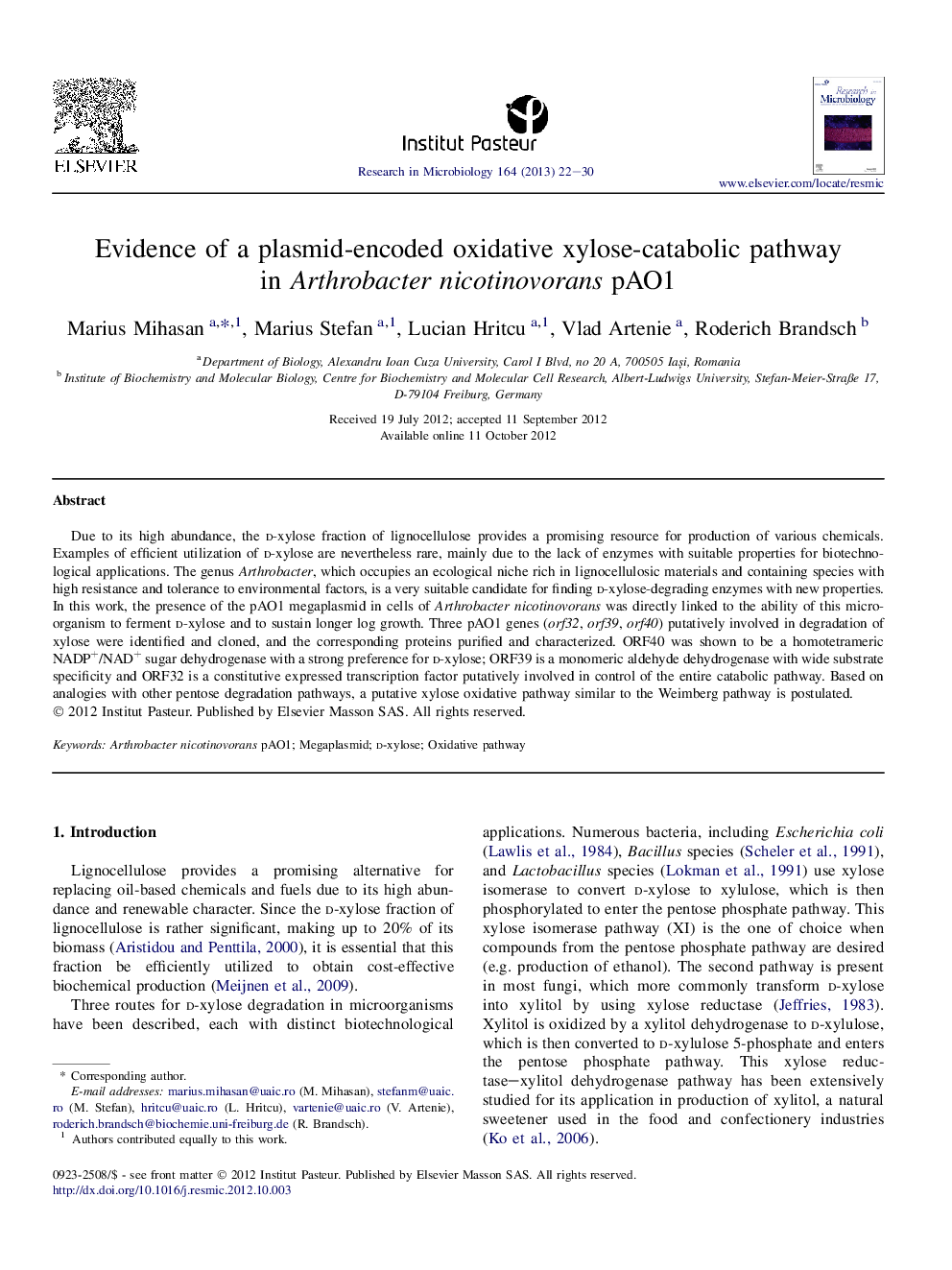| کد مقاله | کد نشریه | سال انتشار | مقاله انگلیسی | نسخه تمام متن |
|---|---|---|---|---|
| 4358595 | 1300443 | 2013 | 9 صفحه PDF | دانلود رایگان |

Due to its high abundance, the d-xylose fraction of lignocellulose provides a promising resource for production of various chemicals. Examples of efficient utilization of d-xylose are nevertheless rare, mainly due to the lack of enzymes with suitable properties for biotechnological applications. The genus Arthrobacter, which occupies an ecological niche rich in lignocellulosic materials and containing species with high resistance and tolerance to environmental factors, is a very suitable candidate for finding d-xylose-degrading enzymes with new properties. In this work, the presence of the pAO1 megaplasmid in cells of Arthrobacter nicotinovorans was directly linked to the ability of this microorganism to ferment d-xylose and to sustain longer log growth. Three pAO1 genes (orf32, orf39, orf40) putatively involved in degradation of xylose were identified and cloned, and the corresponding proteins purified and characterized. ORF40 was shown to be a homotetrameric NADP+/NAD+ sugar dehydrogenase with a strong preference for d-xylose; ORF39 is a monomeric aldehyde dehydrogenase with wide substrate specificity and ORF32 is a constitutive expressed transcription factor putatively involved in control of the entire catabolic pathway. Based on analogies with other pentose degradation pathways, a putative xylose oxidative pathway similar to the Weimberg pathway is postulated.
Journal: Research in Microbiology - Volume 164, Issue 1, January 2013, Pages 22–30